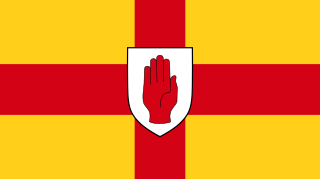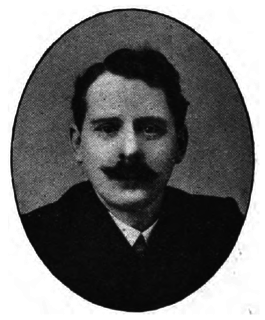
William Allan (August or September 1813 – 15 October 1874) was a British trade unionist.

The British people, or the Britons, are the citizens of the United Kingdom of Great Britain and Northern Ireland, the British Overseas Territories, and the Crown dependencies. British nationality law governs modern British citizenship and nationality, which can be acquired, for instance, by descent from British nationals. When used in a historical context, "British" or "Britons" can refer to the Celtic Britons, the indigenous inhabitants of Great Britain and Brittany, whose surviving members are the modern Welsh people, Cornish people, and Bretons. It may also refer to citizens of the former British Empire.
Born in Ulster, Allan grew up in Glasgow, working in a cotton mill from the age of twelve, then later serving an engineering apprenticeship. However, before completing the apprenticeship, he married and moved to Liverpool, soon finding work with the Grand Junction Railway Company. He later moved to Crewe to further his career, and while there joined the Manchester Society of Mechanics and also the Journeymen Steam Engine and Machine Makers' Friendly Society ("Old Mechanics"), two early trade unions. [1]

Ulster is a province in the north of the island of Ireland. It is made up of nine counties, six of which are in Northern Ireland and three of which are in the Republic of Ireland. It is the second largest and second most populous of Ireland's four provinces, with Belfast being its biggest city. Unlike the other provinces, Ulster has a high percentage of Protestants, making up almost half of its population. English is the main language and Ulster English the main dialect. A minority also speak Irish, and there are Gaeltacht in southern Londonderry, the Gaeltacht Quarter of Belfast and in Donegal, where 25% of the total Gaeltacht population of Ireland is located. Lough Neagh, in the east, is the largest lake in the British Isles, while Lough Erne in the west is one of its largest lake networks. The main mountain ranges are the Mournes, Sperrins, Croaghgorms and Derryveagh Mountains.

Glasgow is the most populous city in Scotland, and the third most populous city in the United Kingdom, as of the 2017 estimated city population of 621,020. Historically part of Lanarkshire, the city now forms the Glasgow City council area, one of the 32 council areas of Scotland; the local authority is Glasgow City Council. Glasgow is situated on the River Clyde in the country's West Central Lowlands. Inhabitants of the city are referred to as "Glaswegians" or "Weegies". It is the fourth most visited city in the UK. Glasgow is also known for the Glasgow patter, a distinct dialect of the Scots language that is noted for being difficult to understand by those from outside the city.

Crewe is a railway town and civil parish within the borough of Cheshire East and the ceremonial county of Cheshire, England. The area has a population of 71,722. Crewe is perhaps best known as a large railway junction and home to Crewe Works, for many years a major railway engineering facility for manufacturing and overhauling locomotives, but now much reduced in size. From 1946 until 2002 it was also the home of Rolls-Royce motor car production. The Pyms Lane factory on the west of the town now produces Bentley motor cars exclusively. Crewe is 158 miles north of London and 35 mi (56 km) south of Manchester.
In 1847, Henry Selsby, the secretary of the Old Mechanics, was arrested for supporting engineers who were on strike, and the following year he resigned, with Allan elected to take his place. Allan was in favour of union amalgamations, and he worked with William Newton to bring together several branches of other unions to form the Amalgamated Society of Engineers, the first example of what became known as a "New Model Union". Some branches of the Old Mechanics did not join, but Allan persevered and by the end of 1851 had brought membership up to over 10,000. [1]
William Newton was a British trade unionist, journalist and Chartist.
New Model Trade Unions (NMTU) were a variety of Trade Unions prominent in the 1850s and 1860s in the UK. The term was coined by Sidney and Beatrice Webb in their History of Trade Unionism (1894), although later historians have questioned how far New Model Trade Unions represented a 'new wave' of unionism, as portrayed by the Webbs.
Allan was also prominent in the national trade union movement. He instigated the formation of the London Trades Council, and was close to the members of the "Junta". He joined the Reform League, attended the first Conference of Amalgamated Trades and first Co-operative Congress, was the treasurer of the Labour Representation League, and although he was initially suspicious of the Trades Union Congress, he soon came to support it, becoming treasurer in 1871. He also became chair of the Bee-Hive newspaper for the labour movement in 1870. [1]

The London Trades Council was an early labour organisation, uniting London's trade unionists. Its modern successor organisation is the Greater London Association of Trades (Union) Councils
The Reform League was established in 1865 to press for manhood suffrage and the ballot in Great Britain. It collaborated with the more moderate and middle class Reform Union and gave strong support to the abortive Reform Bill 1866 and the successful Reform Act 1867. It developed into a formidable force of agitation at the very heart of the country.

The Co-operative Congress is the national conference of the UK Co-operative Movement. The first of the modern congresses took place in 1869 following a series of meetings called the "Owenite Congress" in the 1830s. Members of Co-operatives UK send delegates to the annual congress, where reports of national bodies are made and debates held on subjects of importance to the Co-operative Movement. The meetings also include the Annual General Meeting of Co-operatives UK.
During the 1870s, Allan gradually became less active due to suffering from Bright's disease, but he remained in his posts until his death in 1874. [1]

Bright's disease is a historical classification of kidney diseases that would be described in modern medicine as acute or chronic nephritis. It was characterized by swelling and the presence of albumin in the urine, and was frequently accompanied by high blood pressure and heart disease.








